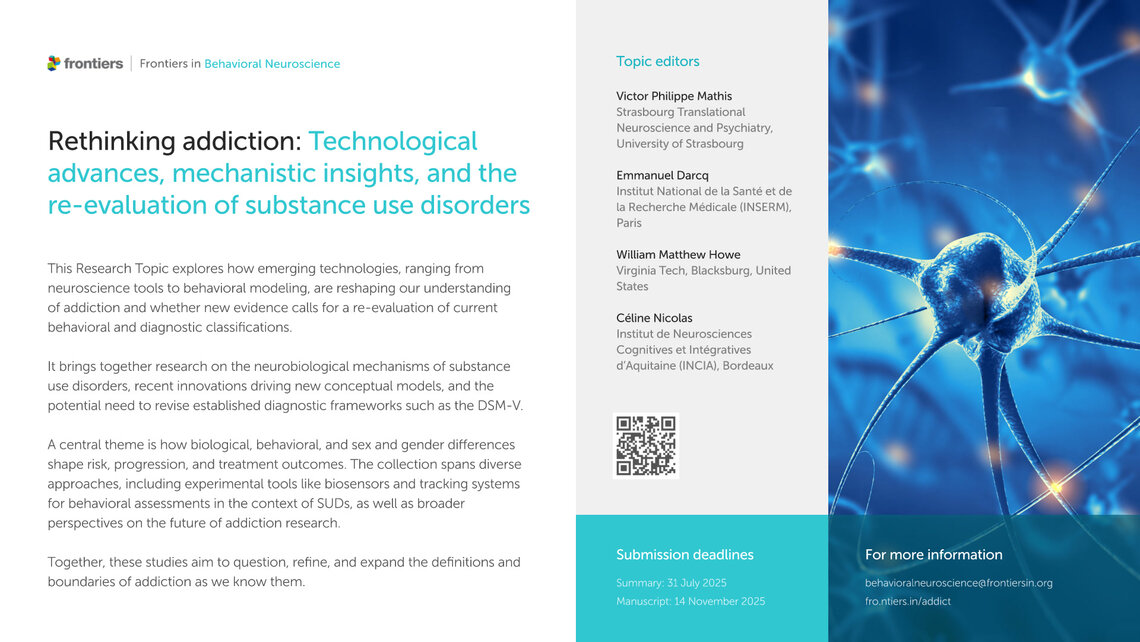Rethinking addiction: Technological advances, mechanistic insights and the re-evaluation of substance use disorders.
This collection of scientific articles explores how emerging technologies, ranging from neuroscience tools to behavioral modeling, are reshaping our understanding of addiction and whether new evidence calls for a re-evaluation of current behavioral and diagnostic classifications.
This collection brings together research on the neurobiological mechanisms of substance use disorders, recent innovations driving new conceptual models, and the potential need to revise established diagnostic frameworks such as the DSM-V.
A central theme is how biological, behavioral, and sex and gender differences shape risk, progression, and treatment outcomes. The collection spans diverse approaches, including experimental tools like biosensors and tracking systems for behavioral assessments in the context of substance use disorders, as well as broader perspectives on the future of addiction research.
Together, these studies aim to question, refine and expand the definitions and boundaries of addiction as we know them.
Drs Emmanuel Darcq and Victor Mathis, researchers in the Addictions team, are behind this collection of articles, with the journal Frontiers in Behavioral Neuroscience.
To find out more, visit the page dedicated to this colletion of articles.

